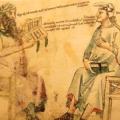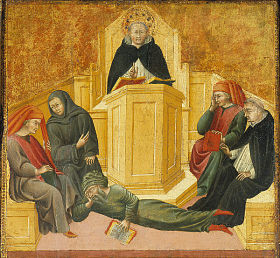249. Paris When it Sizzles: the Condemnations
Two rounds of condemnations at Paris declare certain philosophical teachings as heretical. But what were the long term effects?
Themes:
• D. Piché (ed. and trans.), La condemnation parisienne de 1277 (Paris: 1999).
• J.A. Aertsen, K. Emery and A. Speer, After the Condemnation of 1277: Philosophy and Theology at the University of Paris in the Last Quarter of the Thirteenth Century (Berlin: 2001).
• L. Bianchi, “1277: A Turning Point in Medieval Philosophy?,” in J.A. Aertsen and A. Speer (eds), What is Philosophy in the Middle Ages? (Berlin: 1998), 90-110.
• L. Bianchi, Censure et liberté intellectuelle à l’université de Paris (XIIIe-XIVe siècles) (Paris: 1999).
• K. Flasch, Aufklärung im Mittelalter? Die Verurteilung von 1277 (Frankfurt: 1989).
• M. Hille, Die Pariser Verurteilung vom 10. Dezember 1270 (Leipzig: 2005).
• R. Hissette, Enquête sur les 219 articles condamnés à Paris le 7 mars 1277 (Louvain: 1977).
• J. Thijssen, Censure and Heresy at the University of Paris 1200-1400 (Philadelphia: 1998).
• J.F. Wippel, “The Condemnations of 1270 and 1277 at Paris,” Journal of Medieval and Renaissance Studies 7 (1977), 169-201.
• J.F. Wippel, “Thomas Aquinas and the Condemnation of 1277,” Modern Schoolman 72 (1995), 233-72.
• L.E. Wilshere, “The Condemnations of 1277 and the Intellectual Climate of the Medieval University,” in N. Van Deusen (ed.), The Intellectual Climate of the Medieval University (Kalamazoo: 1997), 151-93.
Stanford Encyclopedia: Condemnation of 1277







Comments
Add new comment